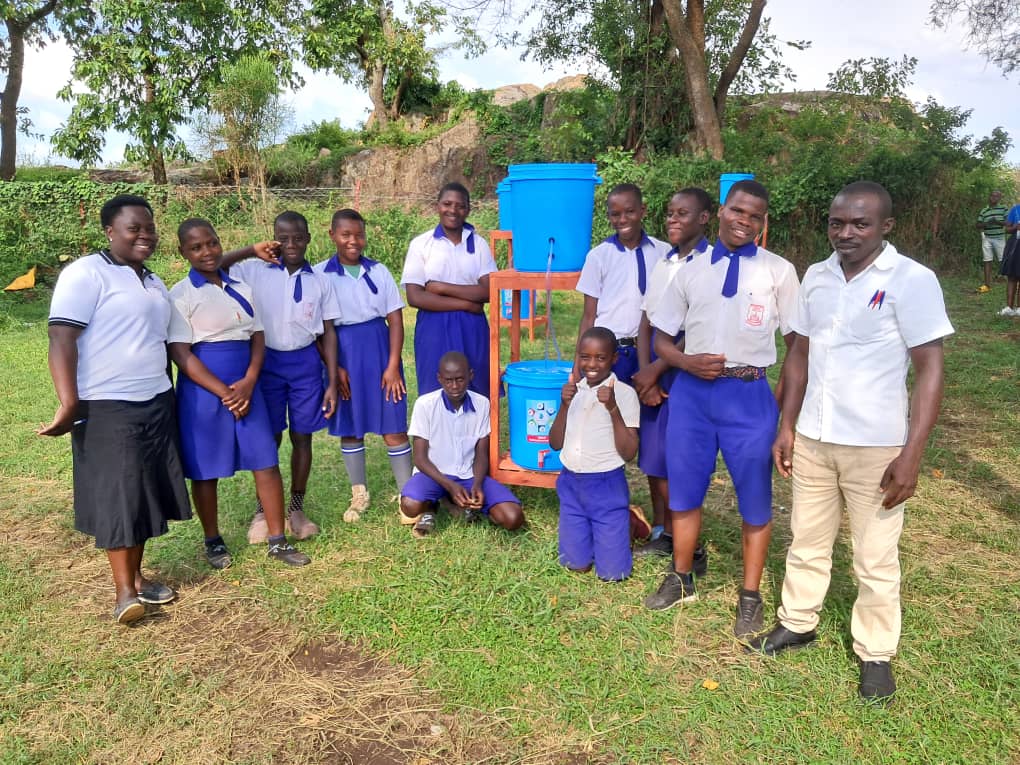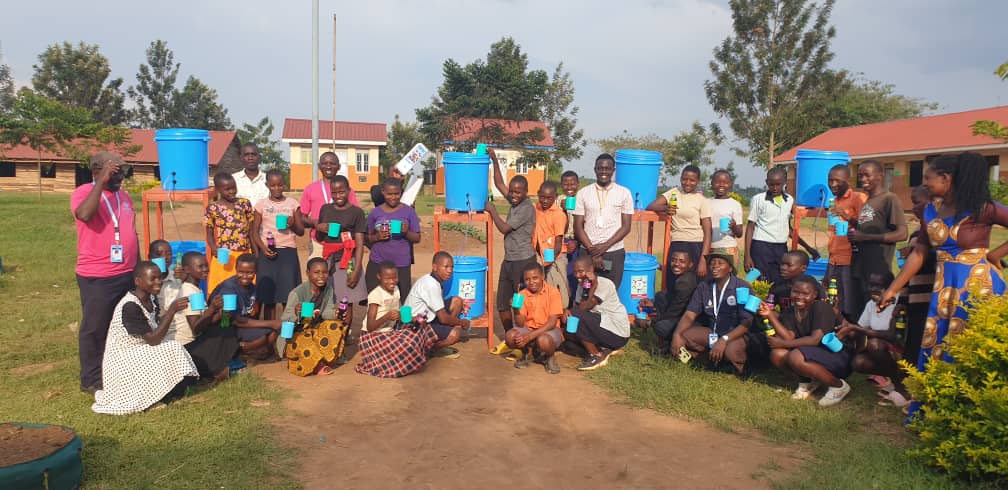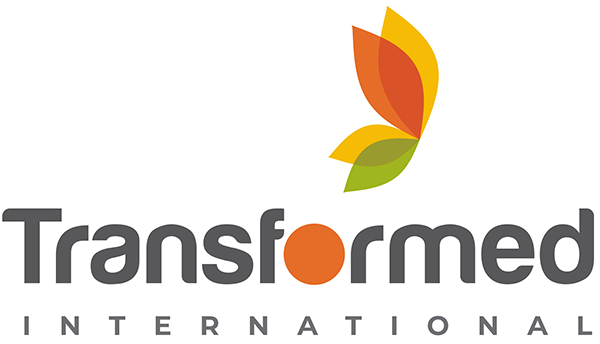Kyaka II Refugee Settlement – Schools and Health Centres Lifewater Pilot
Project Title: Increasing Safe Drinking Water Access at Institutional Level through the Provision of Static Water Filters
Pilot Project Location: Kyaka II Refugee Settlement, Kyegegwa District
Implementing Partners: LifeWater, Nsamizi Training Institute of Social Development (Nsamizi TISD), FCA, MTI, UNHCR, OPM, Oxfam
Project Duration: 4 months (September – December 2024)
Sponsors: The Aall Foundation, Transformed International, Lifewater UK
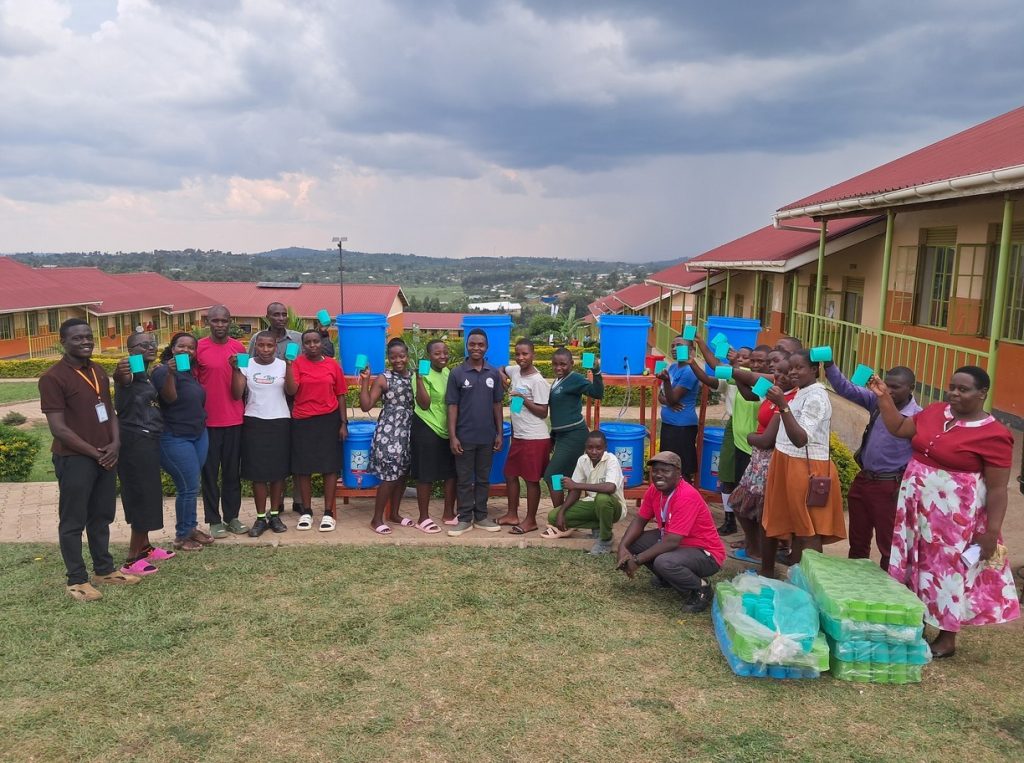
Introduction
This report provides an overview of the water filter distribution activities carried out between 16th – 19th September 2024 in Kyaka II Refugee Settlement. The activity aimed to improve safe drinking water access in two health centers and four schools as part of a pilot project. The intervention was designed to mitigate the risks of waterborne diseases and improve the overall health and well-being of the institutional communities.
Background
Kyaka II Refugee Settlement is home to over 120,000 refugees, most of whom have limited access to safe drinking water. Despite the presence of boreholes and piped water systems, many institutions, such as schools and health centers, struggle with inconsistent water quality, which exposes communities to waterborne diseases such as diarrhea, cholera, and typhoid. To close this gap, Nsamizi, the WASH partner in Kyaka II Refugee Camp, approached LifeWater to support schools and institutions with ceramic water filters to improve water quality at an institutional level.
The proposal identified schools and health centers as critical points for intervention because they serve large, vulnerable populations. The project aimed to provide immediate relief by offering long-lasting water filtration systems that would improve water safety, enhance hygiene practices, and reduce health risks. The pilot project, which covers four schools and two health centers, seeks to establish a scalable model for other institutions within the settlement.
Objectives
To provide 20 static water filters to 4 schools and 2 health centers to ensure safe drinking water access.
To improve hygiene practices through training on the setup, use, and maintenance of the water filter systems.
Summary of Activities
Stakeholder Engagement
Meetings were held with the leadership of the targeted institutions to secure their support and commitment to the project. A total of six meetings were conducted with school management teams and health center leadership, ensuring their readiness to embrace the water filter systems.
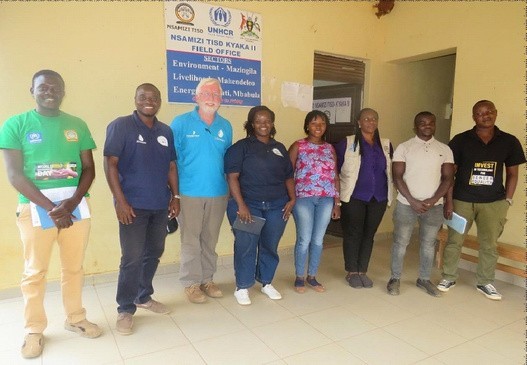
Selection and Registration of Institutions
Six institutions were identified based on water access challenges, student/patient population size, and recommendations from key stakeholders (FCA for schools and MTI for health centres). These included:
Primary Schools: Bujubuli P/S, Kakoni P/S
Secondary Schools: Bukere SS, Bujubuli SS
Health Centers: Mukondo HC III, Bujubuli HC IV
The institutions were officially registered to participate in the pilot.
Training and Sensitization
From September 26th to 28th, a series of training sessions were held to equip the institutions’ staff with the necessary skills for installing, maintaining, and using the water filters. The training covered:
Proper Use: Staff learned how the filters work, how to operate them correctly, and ensure safe drinking water.
Maintenance: Participants were shown how to clean and maintain the filters to ensure their long-term functionality.
Safe Water Practices: The importance of safe storage and handling of filtered water was emphasized to avoid contamination.
Schools
On September 27th-28th, filters were distributed to two primary and two secondary schools, with 20 pupils and 2 WASH club patrons trained at each school.
Training was conducted separately for each school. In total four school WASH clubs were trained to support the ongoing use and monitoring of the filters, helping to promote water safety among students. A WASH booklet was used and donated to the schools. Schools also received a number of cups for pupils to use.
The interactive sessions ensured participants were confident in managing the filters, ensuring the intervention’s sustainability.
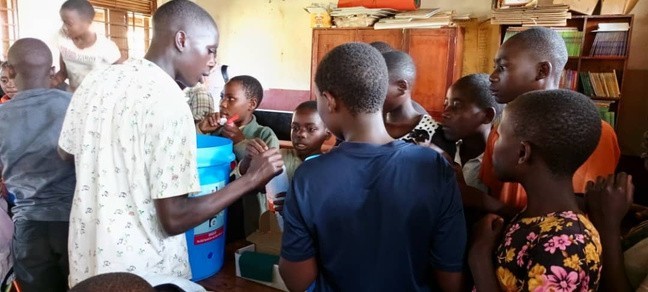
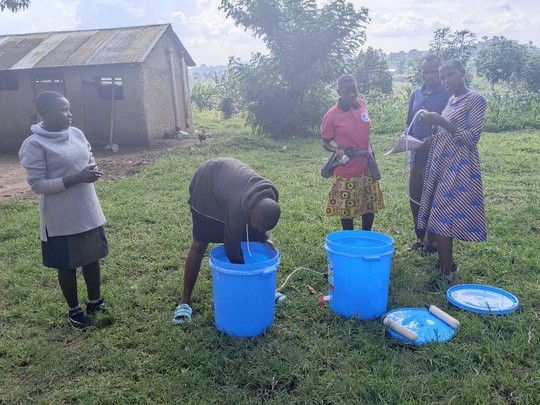
Health Centres
On September 26th, the LifeWater team, supported by MTI and Nsamizi, distributed filters to Mukondo HC III and Bujubuli HC IV. At each health center, 4 individuals (the H/C in-charge, Medical Assistant, and two support staff) were trained in the setup, use, maintenance, and monitoring of the Lifewater systems.
Mukondo HC III serves approximately 51,000 refugees across four zones and 5,000 nationals, while Bujubuli HC IV serves 172,000 individuals, including 131,000 refugees. The facilities handle high patient volumes, and the initiative was well-received, with the administration pledging their support for the pilot’s success.
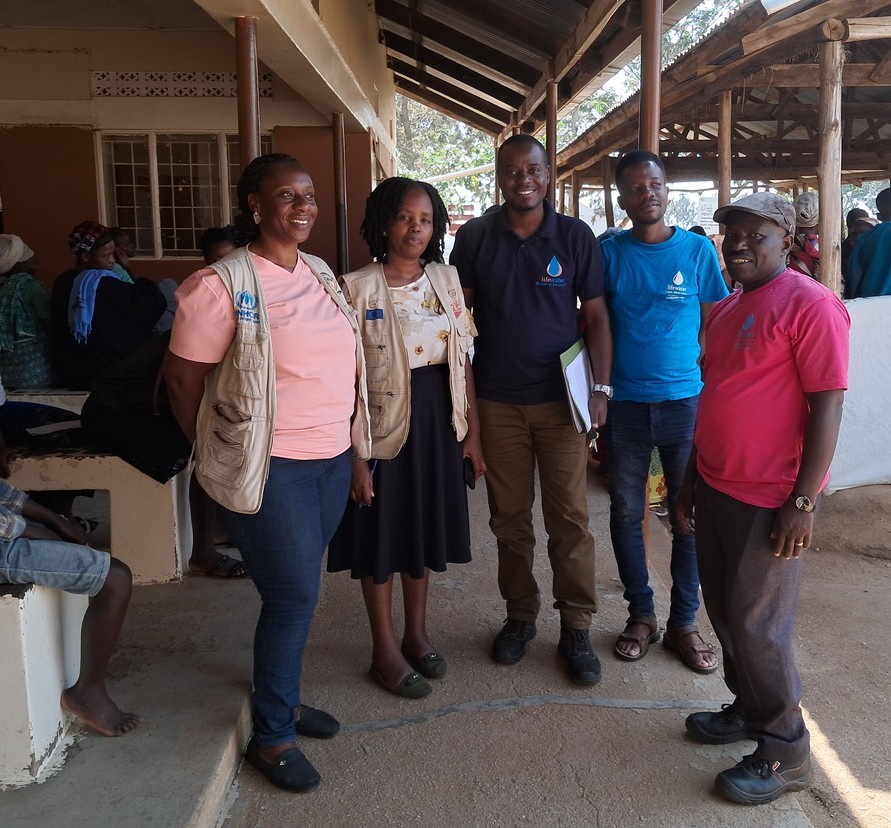
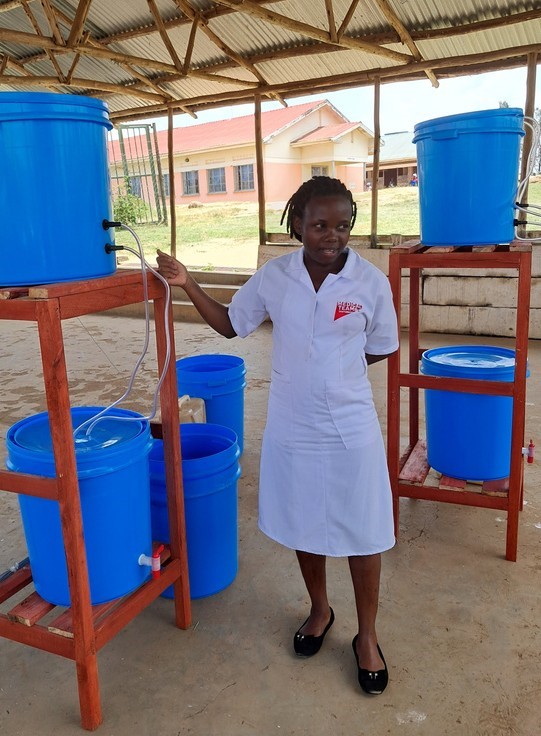
Monitoring and Evaluation
During the planning phase, a monitoring tool was adopted from Lifewater’s host community project to assess filter utilization. A detailed monitoring schedule was developed, with regular checks planned for the duration of the project.
Week 1-2 – daily monitoring of schools. Twice weekly monitoring of health centres.
Week 3-4 – twice a week monitoring
Week 5 onwards – once a week monitoring
Daily monitoring commenced immediately after the installation, focusing on the functionality and proper use of the filters. During the visits various activities were carried out:
Providing on-site troubleshooting support when necessary
Ensuring adherence to maintenance schedules
Checking water flow and filtration speed
Weekly monitoring will continue until the end of the project in December 2024.
Post- Distribution Follow-up:
Further follow-ups will be conducted to assess the effectiveness of the filters, and feedback from the institutions will be collected.
Final Report Preparation:
A final evaluation and report will be submitted at the end of the four-month pilot period.
Conclusion
The successful distribution and installation of 20 water filters in 4 schools and 2 health centres have provided an estimated 8,000 pupils and patients with access to safe drinking water. This intervention is a critical step toward reducing the risks of waterborne diseases in Kyaka II Refugee Settlement. The training sessions were well-received, and institutions are committed to maintaining the filtration systems.
We extend our sincere gratitude to all the partners involved—Nsamizi, FCA, MTI, UNHCR, OPM, and Oxfam—for their support in making this project commencement a reality.
A special thanks to our sponsor, the Aall Foundation, whose generous funding made this pilot possible. As we move forward, we request continued support and additional funding to fully implement and expand this project beyond the pilot phase, ensuring that more institutions within the settlement can benefit from safe drinking water.
